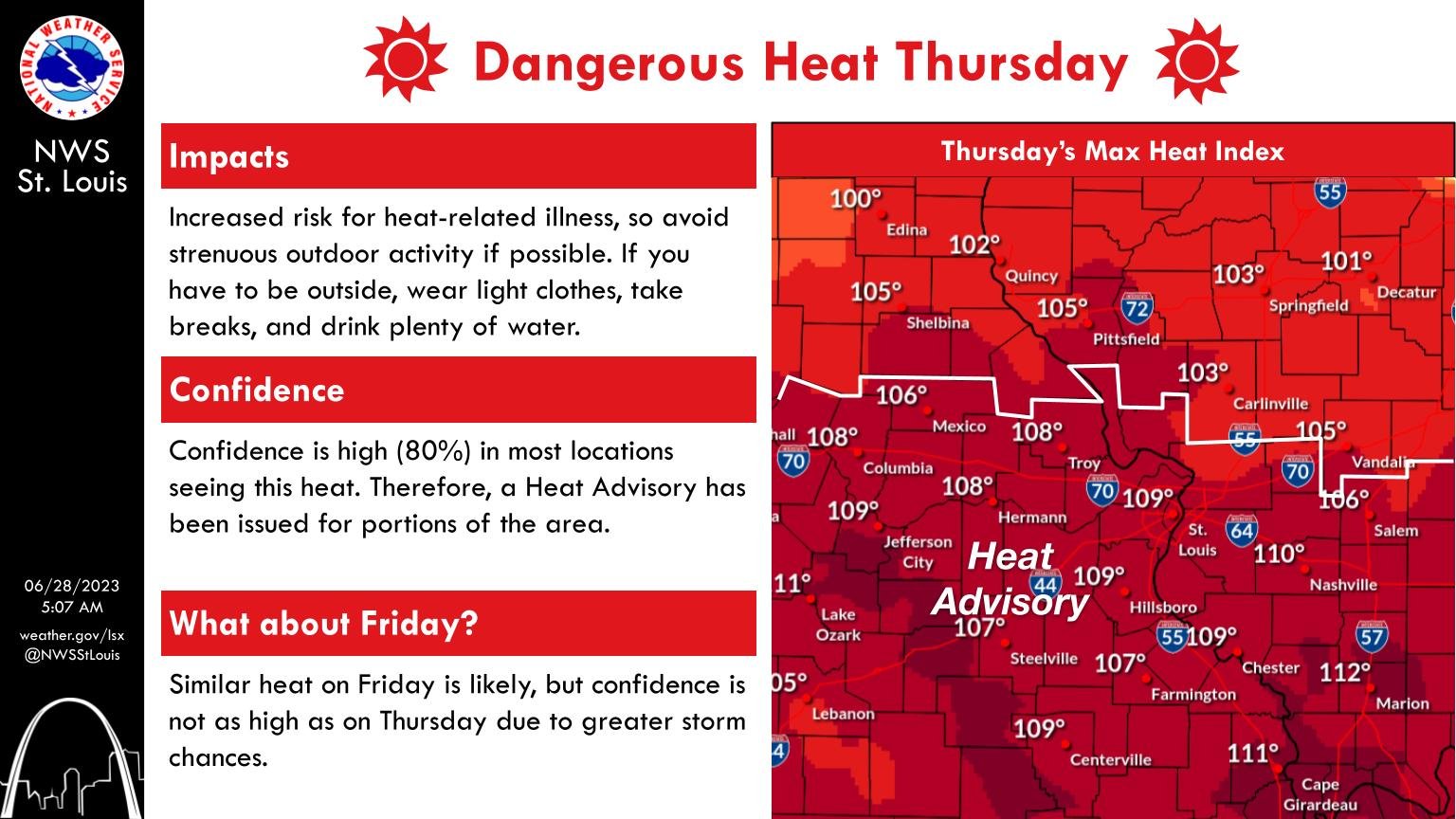

The National Weather Service (NWS) in St. Louis’ heat advisory is now in effect and runs through tomorrow.
NWS St. Louis meteorologist Alex Elmore tells 939 the Eagle that the heat advisory covers all of the 939 the Eagle listening area, including Columbia, Jefferson City and Fulton. Heat index levels expected to be 106 in Columbia and Jefferson City.
The Missouri Department of Health and Senior Services (DHSS) is urging you to take precautions as heat and humidity rise to dangerous levels. DHSS recommends using air conditioning as the best preventative measure, saying heat and humidity place a lot of stress on the body. They’re urging you to stay hydrated and to stay indoors if possible. DHSS urges you to check on those who are elderly and chronically ill. They also remind you to never leave a child or pet alone in a vehicle. DHSS says 23 people died from heat exposure in Missouri in 2022, ranging in age from two to 83 years old.
Meantime, the Boone County Fire Protection District says the very young and the very old are most susceptible to heat emergencies. Boone County Fire Protection District assistant chief Gale Blomenkamp tells 939 the Eagle that you should increase your fluid intake, regardless of your physical activity.
“Obviously during these high heat days when people are out perspiring the way that they are and doing heavy work or heavy activity, people need to double or triple that fluid intake anywhere from 16 to 32 ounces of water an hour if you’re doing heavy work or strenuous activities outside”
Mr. Blomenkamp also recommends that you pace yourself. He says the more you exert in the heat, the more heat your body generates in itself. He also recommends that you wear lightweight, light-colored clothing.
“Dark colors absorb the sun and so, lighter color clothing will reflect that sunlight and those heat waves and heat rays coming in, therefore allowing your body to stay a little bit cooler,” Blomenkamp says.
Assistant chief Blomenkamp also urges you to stay hydrated and to increase your fluid intake, regardless of your physical activity.
 KWOS Jefferson City News Authority
KWOS Jefferson City News Authority


